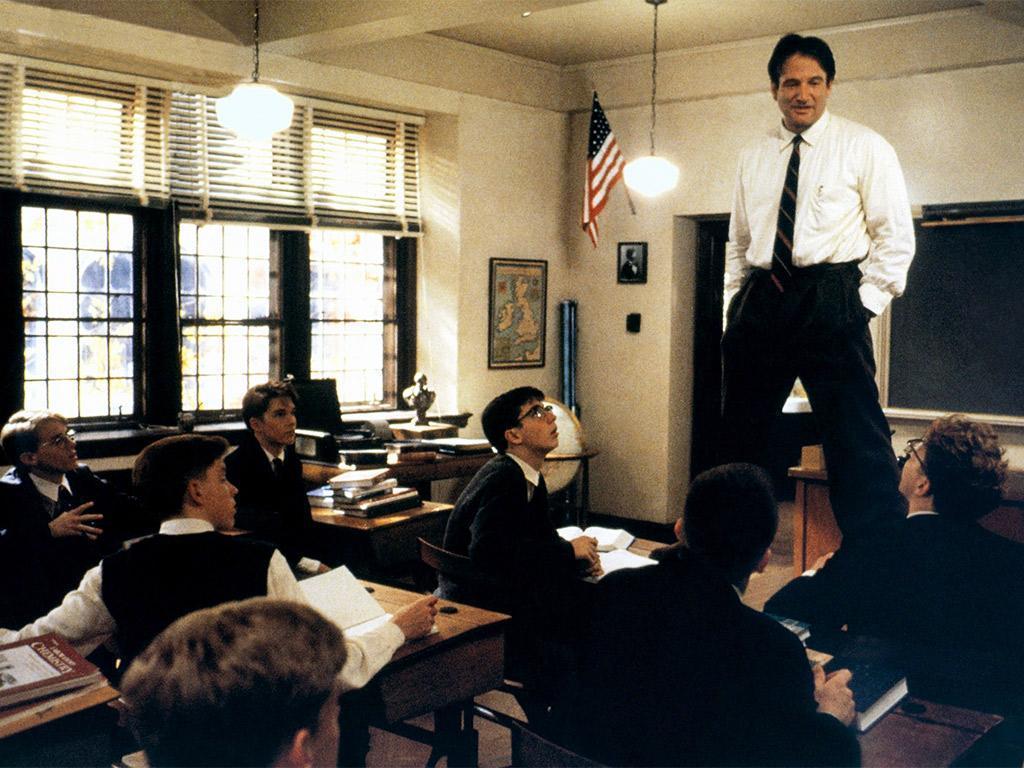Is it time to stop tinkering with school structures and invest in teachers instead?
Research shows that good teachers enhance pupils' learning far more than good schools do, says Richard Garner

Stephen Byers was quite clear about what should be the main focus of the Blair government if it wanted to improve the education system. "It's standards, not structures," he said, emphatically. He even changed his title so that he became known as the School Standards Minister.
Eighteen years later, though, all the focus – both during the Blair government and the subsequent Coalition Government – has been on changing school structures, as academies, free schools and university technical colleges have sprung up.
And this is where politicians have got it wrong, says Alex Beard, from Teach For All, a global organisation campaigning against inequality in education. What they should be focusing upon is the quality of teachers in the classroom and – since this is the best way to improve pupils' life chances – perhaps the pupils should have a say in who their teachers are going to be.
"In education, we file the idea of school choice under structural change, a policy category popular with politicians," he says. "It's a category that includes headline-grabbing stuff such as curriculum reform and alterations to the exam system – important issues, but each with very little effect where it counts: the quality of pupil learning. The one thing that matters there is clear: quality teaching."
Beard recently met with John Hattie, the New Zealand academic described in the TES as the "Messiah" of the new age. Hattie is a firm believer that, to improve the education system, reformers should be concentrating on the differences within schools – not the differences between them.
His research, covering the performance of 250 million children, has shown what works and what does not work in terms of improving a pupil's learning. The effect of the teacher explains about 40 per cent of a pupil's education outcome, he argues, while the effect of the school the pupil is enrolled in only counts for about seven per cent.
"School choice is a false choice," says Beard. "How many people actually change schools? It's not about what school you go to but which class you're in there."
Professor Hattie's research is supported by Eric Hanushek, an economics professor at Stanford University, who estimates that pupils in the class of a bad teacher will only learn half a year's worth of material during the course of a year at school. The same pupils will learn one-and-a-half year's material if they are in the class of an outstanding teacher. "That's a difference of a whole year in material covered, based on which teacher your child gets," says Beard. "If you knew those odds, you'd stop worrying about the school and start thinking about the class."
Beard argues that other forms of intervention, such as GCSE reforms and the development of free schools, have a smaller effect on outcomes. "If it's so clear that the quality of the teaching is what matters, all this talk of structural change is a distraction," he adds. "Is it any wonder that those in education feel that their voices are not heard?"
Evidence, he argues, shows that most educationalists are "chronically unhappy" with the current state of affairs. A survey by educational consultancy The Key showed that 77 per cent of headteachers were dissatisfied with the performance of the Coalition Government. A letter signed by members of the Association of Teachers and Lecturers warned that growing numbers of teachers would be quitting the profession if they were not given more freedom to teach and more support, to have the burden of bureaucracy lifted – "all sensible demands in line with the evidence," Beard says.
"It's easy to see why politicians keep coming back to structural change, though, and to choice in particular," he says. "Despite the costs to the morale of the profession and to the time and resources that teachers and heads can spend on core activities, it generates column inches."
Veteran civil servant Sir Michael Bichard, a former Permanent Secretary at the Department for Education, has said that structural change "consumes energy, causes uncertainty and can distract from the substance", while "giving the impression that much is changing".
"This kind of continual change is anathema to quality education, which relies on consistency of aim and implementation," says Beard.

"School choice doesn't make a big difference to a child's learning and it's really hard to implement. We know, though, that the effect of the teacher whose class the pupil ends up in is enormous. It seems to follow that we should either let kids chose their teachers or make sure the teacher in every classroom is at the top of their game.
"If politicians really wanted to take choice seriously, they would stop debating free schools or academies, GCSEs or EBaccs. Instead, they would get radical, remove the limit on class sizes (it's expensive and studies show this has no effect on kids' learning) and let the children choose which classrooms they attend."
His idea of allowing pupils to choose their teaching has taken off in a number of schools – to the extent that pupils are given the opportunity to interview potential candidates for teaching posts.
Brian Lightman, general secretary of the Association of School and College Leaders, introduced such a system at his school, St Cyres, a comprehensive in Penarth, South Glamorgan, before he took up his role with the teachers' organisation. "The pupils can't make a professional decision about the skills of the teacher," he says. "But they do play an important part in the selection process. They could tell me how that candidate relates to pupils. In my experience, they played an important role in the process – and it was extremely positive. They have nearly always been right in their judgement.
"They carried out interviews with the candidates and they were properly trained for the process and we took their views into consideration when we made a final decision .
"They got it right, except on one occasion when we differed from them – and it was down to the professional skills of the teacher."
However, this method has run into opposition from teachers' leaders. "Appointing staff carries significant ethical and legal responsibilities," says Chris Keates, general secretary of the National Association of Schoolmasters Union of Women Teachers. "It is not only inappropriate to involve pupils directly in interviewing teachers, but it is also unreasonable to place pupils in situations where they are given responsibilities that they may not be able to appreciate fully, for which they have no accountability and that could carry serious consequences if not undertaken effectively.
"Any student-voice practice that is used to make judgements about a teacher's professionalism, and has the potential to undermine teachers' professional authority, is unacceptable – and interviewing teachers would fall into that category."
Beard is pessimistic as to whether his proposed reforms will be put into practice. "This isn't about to happen," he says, "in which case I have another suggestion for those about to take power. Stop thinking about choice, start investing in teacher recruitment, training and development. Oh, and build some more primary schools."
Join our commenting forum
Join thought-provoking conversations, follow other Independent readers and see their replies
Comments
Bookmark popover
Removed from bookmarks